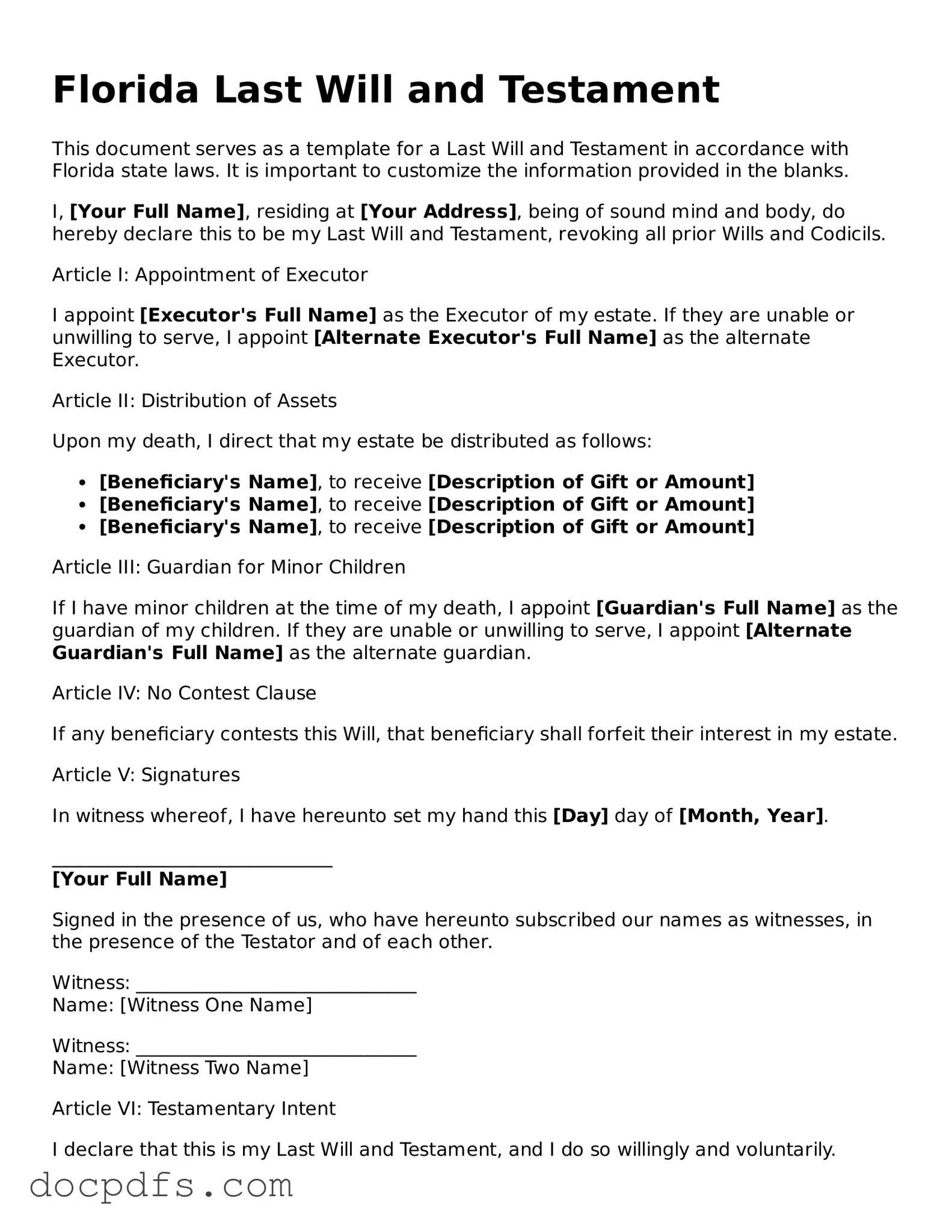What is a Florida Last Will and Testament?
A Florida Last Will and Testament is a legal document that outlines how a person wishes to distribute their assets after their death. It allows individuals to specify beneficiaries for their property, appoint guardians for minor children, and name an executor to manage the estate. Having a will in place can help ensure that your wishes are honored and can make the process easier for your loved ones during a difficult time.
Who can create a Last Will and Testament in Florida?
In Florida, any person who is at least 18 years old and of sound mind can create a Last Will and Testament. This means you must understand the nature of the document and its implications. If you are a minor or deemed mentally incompetent, you cannot legally create a will.
What are the requirements for a valid will in Florida?
For a will to be valid in Florida, it must meet several key requirements:
-
The will must be in writing.
-
The person creating the will (the testator) must sign it at the end.
-
At least two witnesses must sign the will in the presence of the testator.
-
The witnesses must also be at least 18 years old and not beneficiaries of the will.
By following these guidelines, you can help ensure that your will is legally enforceable.
Can I change my will after it is created?
Yes, you can change your will at any time while you are still alive and mentally competent. To make changes, you can either create a new will that revokes the previous one or add an amendment, known as a codicil, to the existing will. It is essential that any changes comply with Florida's legal requirements for wills to remain valid.
What happens if I die without a will in Florida?
If you pass away without a will, your estate will be distributed according to Florida's intestacy laws. This means the state will determine how your assets are divided, which may not align with your wishes. Generally, your assets will go to your closest relatives, such as a spouse, children, or parents. Having a will helps you avoid this situation and ensures your preferences are followed.
Can I include specific wishes in my will?
Absolutely! A will can include various specific wishes, such as:
-
Distribution of personal belongings, like jewelry or family heirlooms.
-
Instructions for the care of pets.
-
Funeral arrangements or preferences regarding burial or cremation.
These details can provide clarity and help your loved ones honor your requests.
Is it necessary to hire a lawyer to create a will in Florida?
While it is not legally required to hire a lawyer to create a will in Florida, consulting with one can be beneficial. A lawyer can help ensure that your will complies with state laws and can provide guidance on complex situations, such as blended families or significant assets. If your estate is relatively simple, you might choose to prepare the will on your own using templates or online services.
How do I ensure my will is properly executed?
To ensure your will is properly executed, follow these steps:
-
Make sure you are of sound mind and at least 18 years old when signing.
-
Sign your will in the presence of at least two witnesses.
-
Have your witnesses sign the will as well.
-
Consider having the will notarized, although it is not required in Florida.
Taking these steps can help prevent challenges to your will in the future.
How can I revoke my existing will?
You can revoke your existing will in several ways:
-
By creating a new will that explicitly states that it revokes any previous wills.
-
By physically destroying the old will, such as tearing it up or burning it.
-
By making a formal written statement that declares the revocation of the old will.
Always ensure that your intentions are clear to avoid confusion among your heirs.

